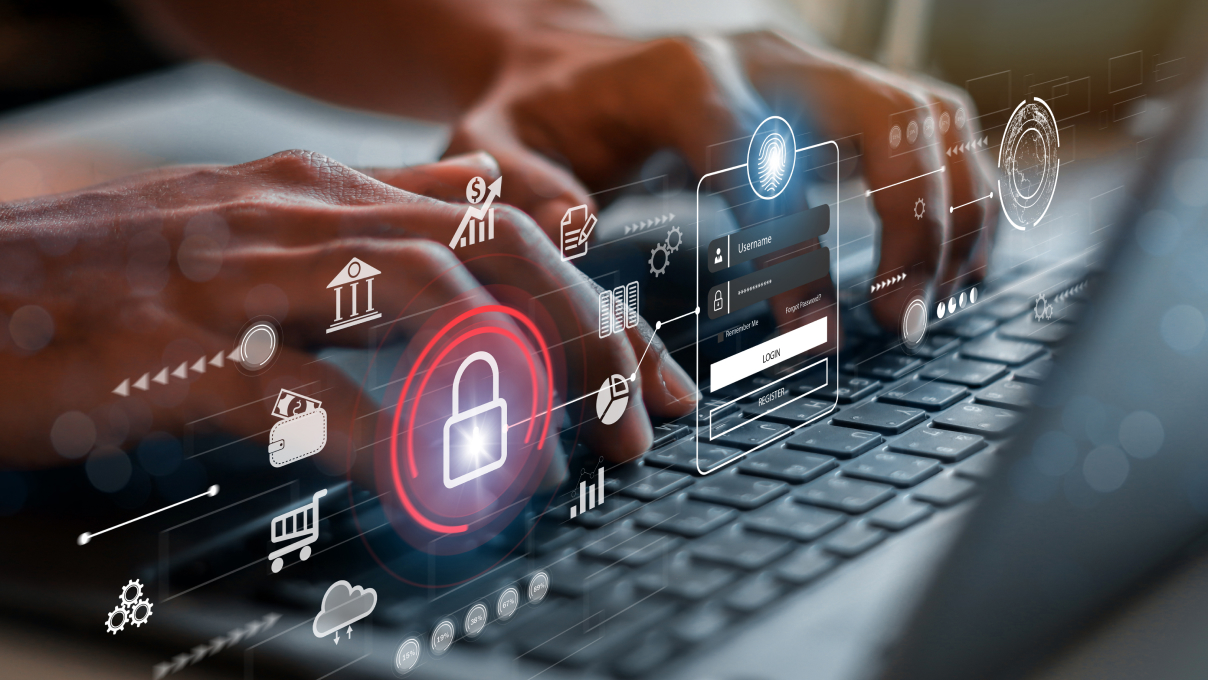In times dominated by technology, the role of cybersecurity cannot be overstated. As organizations increasingly rely on technology to manage their operations, data breaches and cyber threats have become more frequent and even more sophisticated. Among all departments, Human Resources (HR) holds a unique position when it comes to cybersecurity, and we’ll explain why within this article. Read on to learn how to maintain HR data security in workplace, guaranteeing the safety of employees and their personal information, as well as fostering a cyber-aware culture. We’ll explore how HR professionals can utilize tools like VPN, stay updated with cybersecurity trends, and mitigate potential threats.
HR security: safeguarding employee information
Within the intricate workings of HR departments lies a treasure trove of sensitive information, ranging from the nuanced details of employee records to the intricacies of financial data. This data holds immeasurable value, serving as a cornerstone for effective personnel management and organizational growth. In today’s digital landscape, where cyber threats loom large, safeguarding this data is not just a legal mandate but a fundamental duty in preserving the trust that underpins a thriving workplace.
Taking on the mantle of cybersecurity, HR professionals assume a pivotal role as sentinels guarding against unauthorized access and potential data breaches. The implementation of encryption for stored data erects a robust defense mechanism, rendering sensitive information indecipherable to any unauthorized entity attempting to breach the walls. Integrating multi-factor authentication ensures that only legitimate individuals gain access, adding an extra layer of safeguarding. However, the commitment to data security doesn’t end here; it is a continuous endeavor. Regular security audits function as vigilant checks, identifying vulnerabilities that malicious actors might exploit. By proactively addressing these weaknesses, HR professionals demonstrate their dedication to upholding the confidentiality and integrity of employee data.
HR security isn’t just a protocol; it’s a comprehensive strategy that empowers HR professionals to stand as guardians of trust. Through encryption, multi-factor authentication, and unwavering security audits, they create an environment where employee data remains shielded from the evolving landscape of cyber threats. By embracing this pivotal role, HR professionals not only fulfill their duty as data custodians but also contribute to the sustained success of the organization and the confidence of its workforce.
Securing human resources: fortifying the hiring process
The hiring process, a pivotal gateway to an organization’s growth, is about finding the right talent and safeguarding sensitive information. During this phase, a wealth of confidential documents, from resumes to interview notes, are exchanged, making it an attractive target for cyber threats seeking valuable data for malicious purposes. Hence, HR professionals play an essential role in orchestrating this process securely to mitigate potential risks.
HR specialists must adopt secure document-sharing platforms and encrypted communication channels to bolster HR data security. These technologies act as digital sentinels, ensuring that confidential information remains protected during transmission. Such platforms encrypt data, rendering it unreadable to unauthorized eyes and ensuring that only intended recipients can access it. This fortified layer of security thwarts the attempts of cybercriminals seeking to exploit vulnerabilities in the hiring process.
Recognizing cybersecurity is an evolving landscape, regular training becomes an imperative tool for HR departments and staff engaged in hiring. By imparting knowledge about potential cyber threats and best practices, HR professionals empower their colleagues to identify risks and adhere to stringent security protocols. This training serves as a force multiplier in maintaining the integrity of the hiring process, nurturing a cadre of vigilant individuals who actively contribute to the organization’s defense against cyber threats.
Fostering a cyber-aware culture: empowering employees
In the intricate web of modern organizations, the bedrock of a robust cybersecurity environment lies in technological solutions and its workforce’s collective awareness and vigilance. HR professionals are architects of this culture, pioneering the creation of a cyber-aware mindset among employees. The significance of this role cannot be overstated, as even the most advanced security systems can be compromised without a vigilant and educated human element.
The canvas upon which HR professionals paint this culture of cyber-awareness is through consistent and comprehensive training sessions. These sessions act as illuminating guides, enlightening employees on the intricacies of cybersecurity, from the dangers of phishing attacks to the nuances of password hygiene, the art of recognizing social engineering tactics, and securing the email with DMARC. By imparting this knowledge, HR professionals empower employees to stand as the first line of defense against potential threats, turning them from potential targets into formidable shields.
In this endeavor, collaboration between HR and IT teams becomes a bridge between strategy and implementation. By joining forces, these departments can develop comprehensive and effective cybersecurity policies that resonate throughout the organization. These policies outline the best practices and lay out the blueprint for responding to cyber incidents. The key to success lies in clear and concise communication, ensuring that every organization member is well-informed about their role in maintaining a secure digital environment. It’s also important to mention that mastering duties segregation is another must for fighting cyber threats. This essentially turns the concept of teamwork into one which has security implications and benefits.
Embracing VPN technology: remote work and security
In the wake of recent shifts in work dynamics, remote work has emerged as a transformative trend, offering unprecedented flexibility and productivity. However, this paradigm shift comes hand in hand with heightened cybersecurity concerns. Recognizing this intricate landscape, HR professionals are pivotal in ensuring the safety of employees working from remote environments. Adopting Virtual Private Network (VPN) technology is a potent weapon in their arsenal.
Remote work liberates employees from the confines of the traditional office, allowing them to access company systems and sensitive information from various locations. This newfound freedom, while empowering, introduces vulnerabilities that cybercriminals can exploit. HR professionals, attuned to the nuances of cybersecurity, must adopt VPN usage among remote employees. VPNs create encrypted tunnels through which data is transmitted, shielding it from prying eyes and ensuring secure connections even over potentially unsecured networks.
Encouraging remote employees to embrace VPNs is not merely a technical endeavor; it’s a proactive measure to safeguard employee and organizational interests. By utilizing company VPNs, remote workers establisha digital fortification that safeguards their interactions with company systems, rendering them invisible to malicious actors attempting to intercept sensitive data. This approach counters potential cybersecurity threats posed by remote work environments, ensuring that the benefits of remote work are reaped without compromising data security.
Staying vigilant: navigating cybersecurity trends and threats
In the ever-evolving cybersecurity landscape, where threats morph, and strategies adapt, staying vigilant cannot be overstated. This vigilance translates into a proactive stance against potential cybersecurity threats for HR professionals. Recognizing that cybersecurity is not just a reactive measure but a proactive strategy is fundamental in safeguarding both employee well-being and workplace integrity.
Embracing the role of cybersecurity as a proactive measure requires HR specialists to be well-versed in emerging trends. The digital realm is a dynamic battlefield where cyber threats continuously evolve and take on new forms. By staying informed about the latest tactics employed by cybercriminals, HR professionals position themselves at the forefront of defense, ready to adapt and strategize against emerging threats.
Regularly monitoring cybersecurity trends is not merely a technical task; it’s a strategic imperative. HR professionals can leverage this insight to adapt their strategies, recalibrating their defenses to address evolving threats effectively. This proactive approach extends beyond technology, encompassing training and awareness programs that equip employees with the knowledge to identify and respond to emerging cyber threats.
While adopting VPN technology for workplace data security, acknowledge that there are diverse VPN services. Notably, a VPN with a static IP provides superior benefits that HR professionals should be aware of. Therefore, it’s paramount that employees learn about VPN static IP for adequate security and stability.
ISO 27001: Amplify HR Security Practices
As you continue to enhance your commitment to cybersecurity, the application of ISO 27001 becomes relevant. An internationally recognized standard for Information Security Management Systems (ISMS), ISO 27001 provides a systematic approach towards managing sensitive information and improving data protection mechanisms. It’s especially important if we consider the crucial role HR plays in handling sensitive employee data.
To elevate your organization’s security efforts, it could be beneficial to obtain ISO 27001 certification. This involves meeting certain criteria like establishing robust risk assessment procedures and implementing a strict information security policy. It further emphasizes on continuous improvement, indicating that maintaining strong data protection isn’t just about initial implementation, but is indeed an ongoing effort.
Integral role of cybersecurity for HR professionals in modern workplaces
In the swiftly shifting landscape of modern workplaces, cybersecurity takes center stage, safeguarding employee well-being and overarching security. Human Resources professionals, now data custodians, ensure secure data access by implementing encryption, multi-factor authentication, and audits. Beyond data protection, HR secures recruitment through encrypted channels and training against threats. They foster cyber-awareness with consistent training and collaborative policy formulation, champion VPNs for remote security, and remain vigilant against evolving threats, thus fortifying the organizational ecosystem. In this dynamic role, HR professionals protect the workforce and strengthen the digital foundation of organizational success.











